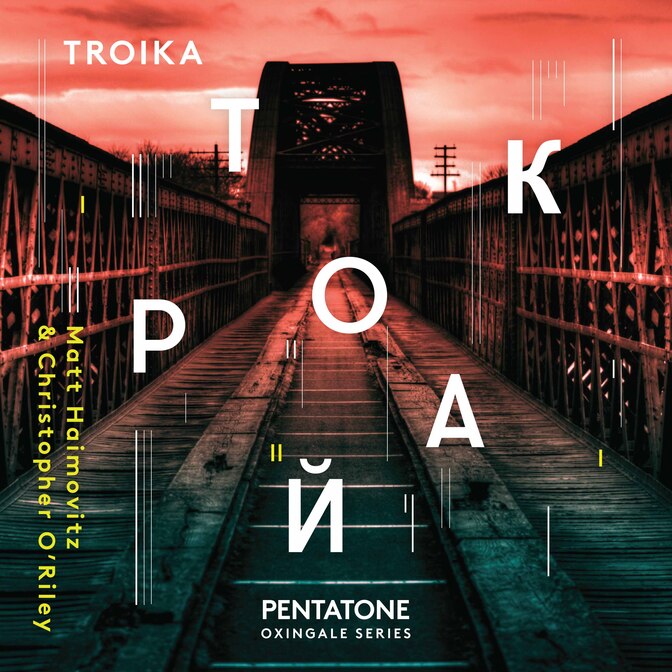CD1
Dmitri Shostakovich (1906 - 1975)
Sonata For Cello And Piano, Op.40
Sergei Prokofiev (1891 - 1953)
Sonata for cello & piano, Op.119
CD2
Sergei Vasilievich Rachmaninoff (1873 - 1943)
Sonata in G Minor for Cello & Piano, Op.19
Sergei Vasilievich Rachmaninoff
Viktor Tsoi (1962 - 1990)
Pussy Riot
John Lennon (1940 - 1980) and Paul McCartney (1942 - )
Album information
Acclaimed for their adventurous and wide-ranging recording projects – from Beethoven Sonatas on period instruments to genre-bending arrangements of Radiohead and Arcade Fire – the endlessly inventive duo of cellist Matt Haimovitz and pianist Christopher O’Riley returns to explore music of the Slavic soul. Anchored by the cello sonatas of the iconic triumvirate of Russian composers –Rachmaninoff, Prokofiev, and Shostakovich – and inspired by the subversive irony of Shostakovich’s Sonata, TROIKA also delves into more recently-written, unexpected, and popular works. Whether subtle or blatantly rebellious, each work potently reveals the strength of the artistic voice in the face of political repression in mother Russia.
“With our cover of Pussy Riot’s Punk Prayer, we celebrate the band’s courage and the spirit of protest in an age of Orwellian intimidation. In the opening and closing chorales, I use a glass slide on the strings as I pluck with the right for an eerie theremin-like effect. The grunge punk distortion in the bass is also acoustically achieved with a styrofoam cup smashed behind the cello’s bridge.
The traditional three-horse-drawn troika moved across the Russian landscape with its own elaborate system of bells and whistles, used to herald its arrival to the coming town. Here, the composers and songwriters of TROIKA, each in their own way, use the power of their voices to warn and to cajole, to resist and to remember” – Matt Haimovitz






